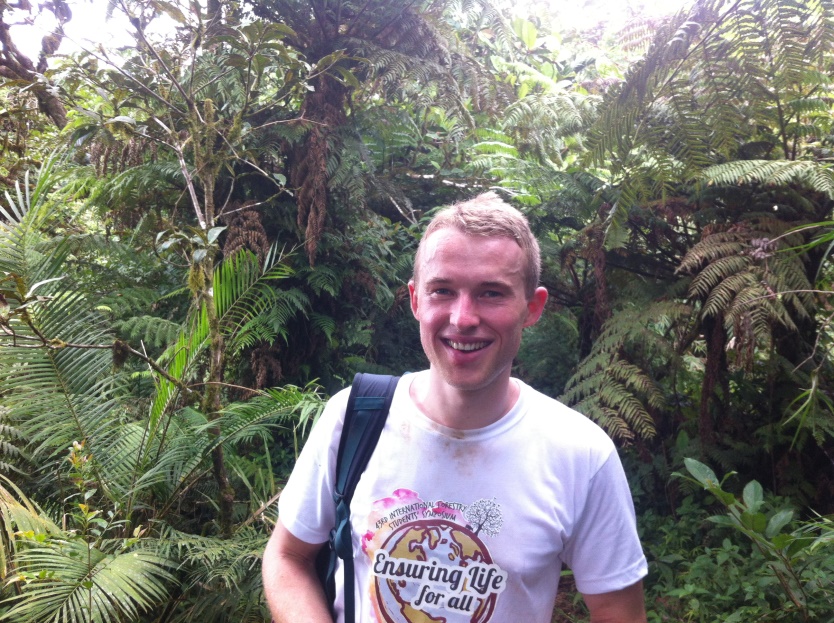
From its start in Manila to its end at the University of the Philippines Los Baños, the International Forestry Students’ Symposium (IFSS) was an enriching journey, full of learning, networking, fun, and cultural and knowledge exchange with people from all corners of the globe.
IFSS is the major annual event for the International Forestry Students’ Association (IFSA), who represent forestry students from around the world. The 2015 symposium hosted 96 students from 24 countries; all continents, other than Antarctica, were represented.
This two-week event is divided between important association activities, including passing motions and directions set by the IFSA committee, presentations by students and keynote speakers from the host country and international organisations. This leaves you with just enough time to explore the environment, culture and heritage of the Philippines through a great number of field trips and tours.
On the first day of lectures and presentations held at the Senate office of the Philippines, Dr Yurdi Yasami gave a captivating presentation on the 21st Century forester. Dr Yasami holds the position of Forest Policy Officer for Asia and the Pacific for the Food and Agriculture Organization (FAO) of the United Nations. His basic message was the need for foresters and forest scientists to adapt to the modern age and be society ready foresters. Instead of foresters just having the skills to manage forests in the modern day, they need to have skills to communicate to large populations, communities and individuals, on issues facing forests and forest management around the world.
Dr Yasami raised that much of the community and society is unaware of the need to correctly manage forests to maintain them for the future. This issue struck home to myself greatly as many forest professions including forest managers and forest scientists in Australia are highly skilled in their individual roles, but when it comes to educating the community and society on the importance of managing forests for the future and what is necessary to sustain such forests, communication levels and methods are poor.
This is in contrast with countries such as Germany and Austria where education on forest management occurs at a young age and practical knowledge on forestry within these countries is substantial amongst the population. Having delegates from countries such as Austria and Germany attending IFSS made it possible to learn about such facts in a short period of time.
The best part about IFSS was the representation of delegates from 24 countries, facilitating the exchange of knowledge, stories and experiences in such a short space of time. My mind was opened up to the different issues faced by countries all around the world in relation to forestry. These topics were not just around the management of the forests, but also included forest education in their respective universities and the opportunities for soon to be graduates.
To address its key goals and initiatives, IFSA has established a number of commissions including forestry education, training, fund raising, promotion and communication. During the symposium delegates were split into groups to focus on the development and required changes in each commission to ensure their long-term effectiveness and survival.
The forestry education commission seeks to identify and combat issues in forestry education. One of the major issues addressed was the decline in forestry student enrolments in tertiary programs throughout the world. The popularity of undergraduate and postgraduate degrees in forestry has been at a continual decline while programs such as environmental science, biology and zoology are more attractive to students today.
Group discussions centred on how education providers can best market forestry programs to students to improve enrolment numbers. We need to better advertise that forestry studies lead not just to a career in forest management, but an array of disciplines including land care and wild life conservation, climate change science and policy ,and international aid and development. As a student undertaking a tertiary degree in forestry and realising the continual decline in forestry education in Australia and abroad, I need to be an ambassador and a leader in trying to promote the profession and education of forestry.
Overall IFSS 2015 was immeasurable in its benefits and experiences for myself. It is important for me to take on such experiences and learning, and pass it on to the students and people in my country and university. While I have been inspired to work in and address many issues that the forestry sector faces, such as a decline in forestry education in Australia, I too will have to promote and encourage other students studying forestry to attend IFSS in the future and reap the wide array of benefits it offers.